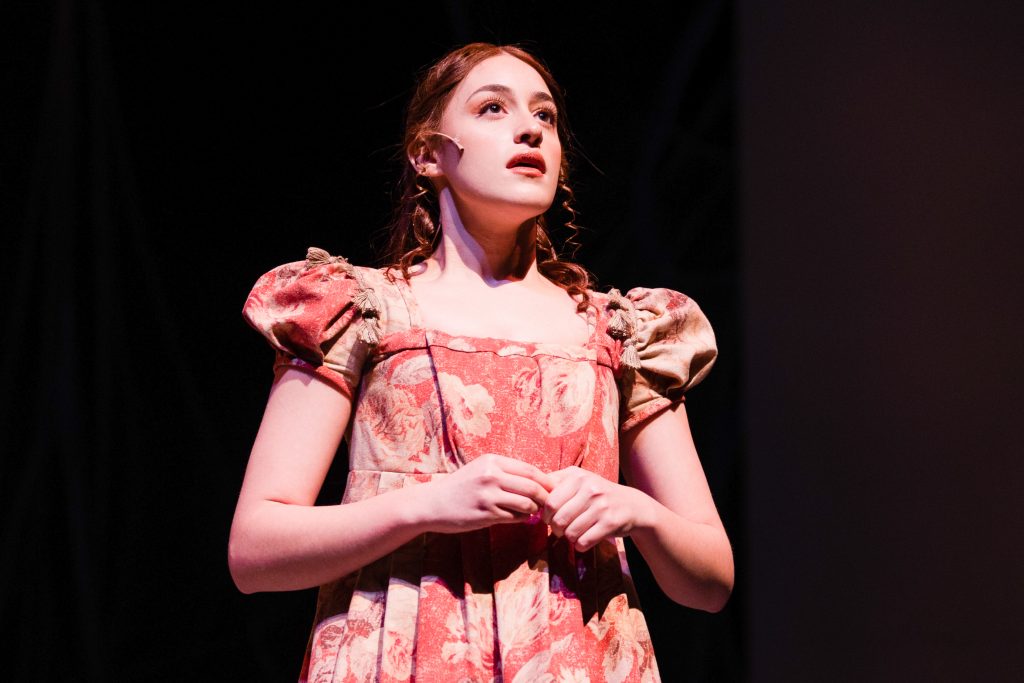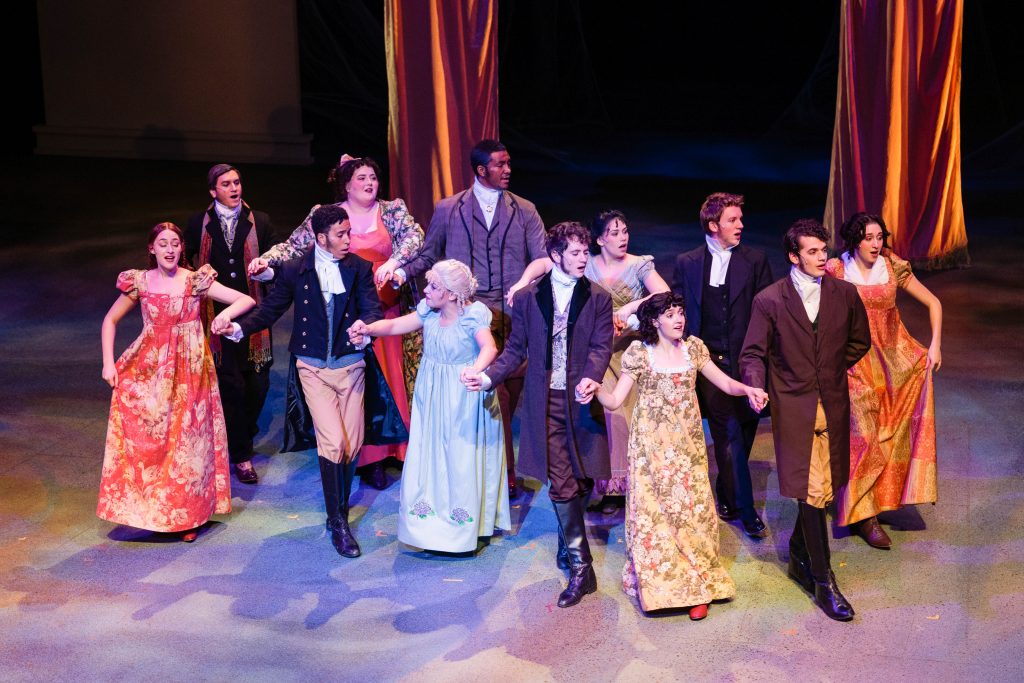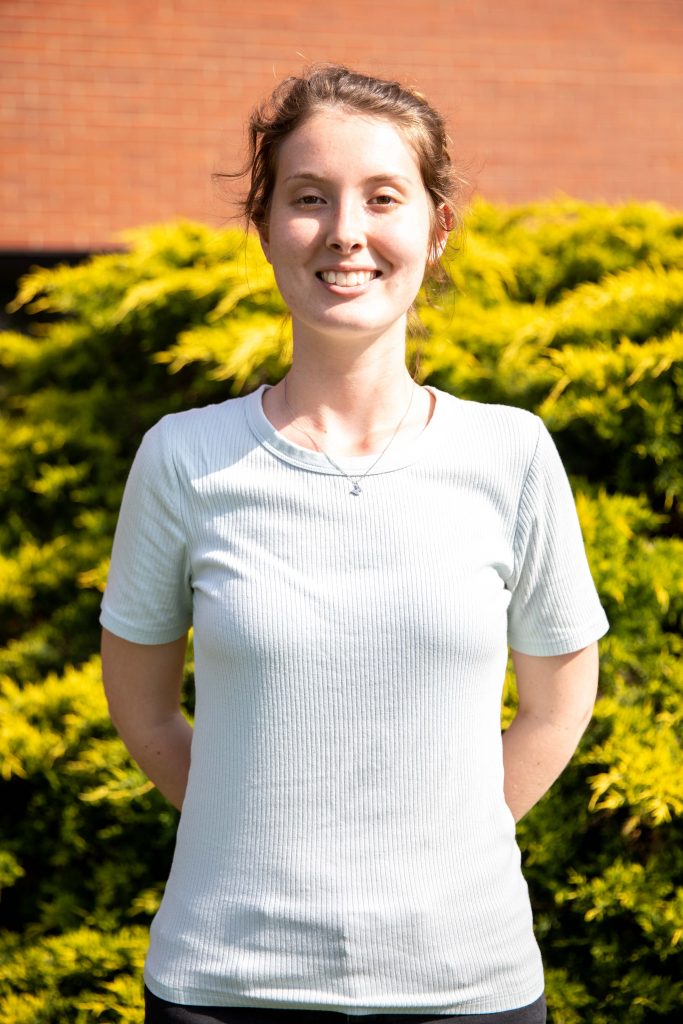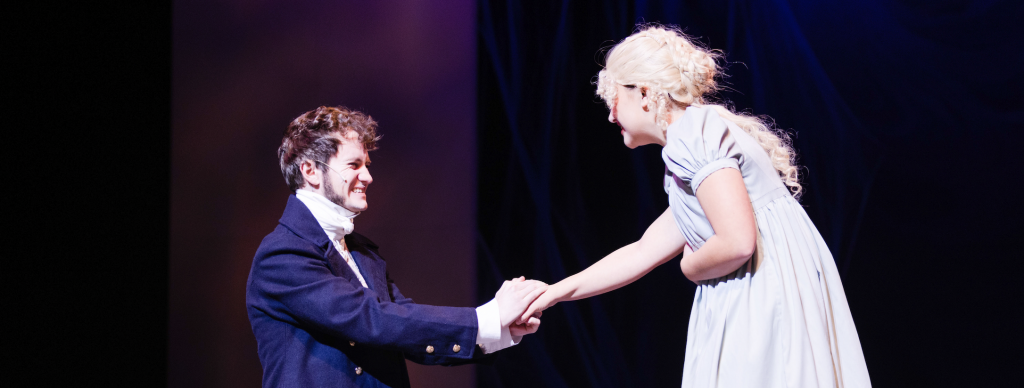They say some matches are made in heaven, but what happens to the ones made by Emma? Written by Paul Gordon, “Emma” the musical brings Jane Austen’s novel of the same name to life, introducing music and choreography amidst the regency era drama. The story follows a young noblewoman named Emma who fancies herself a matchmaker. With time, she realizes how her meddling hurts those around her and that true love may be right around the corner.
Victoria Winsky played the starring role of Emma Woodhouse, and Aaron Hall played the lead of Mr. Knightley. Both Winsky and Hall are seniors in the musical theatre BFA program.
“I definitely (relate to Emma),” Winsky said. “She gets such a beautiful arc where she learns that what she’s done is wrong, and she’s held accountable for her actions. It’s only when she’s willing to be humble and admit fault that she actually cares and loves for the people that she has in life. And that’s been a lesson I’ve learned in my life.”

Though Hall did not relate to Mr. Knightley at all, he still appreciated his character arc.
“(Mr. Knightley) is not just a stoic love interest, just there to fall in love,” Hall said. “He’s fun to play with his dry humor and sarcasm.”
Both Winsky and Hall agreed that it was hard to physically connect to their characters due to the time period. They had to adjust their posture, the way they held themselves and even the way they naturally looked. For example, Winsky had to wear a blonde wig.
Winsky had read “Emma” the novel and enjoyed having the opportunity to play one of her favorite characters. Although the musical rendition didn’t include a few characters, the story still rang true to the original, especially when it came to the themes.
“Love is actually an action,” Winsky said. “In this production, we get to portray love as what it really is.”
While Hall hadn’t read the original novel prior to acting in the play, he took inspiration from several of the character descriptions in the book. Like Winsky, he agreed that the musical embodied themes of humility, forgiveness and change.
“There is hope for change (and) hope for second chances (and) reconciliation in relationships,” Hall said about what he wanted the audience to take away from seeing the play.

Hall said one of his favorite parts of this play was the costumes. The handmade costumes exceeded both their expectations and helped them visualize their characters. Lynne Forth, costume designer for the theater department, and Salem Watson, assistant costume designer, stitched the outfits together. They used flowery fabrics to compliment dresses and sewed coattails on men’s coats to show off the fashion of the regency era.
Though there are many entertaining scenes to choose from, Winsky and Hall’s favorite, despite it being one of the most difficult to act out, is “the argument.” In the scene, Mr. Knightley confronts Emma about her matchmaking foolery for the first time.
“The argument” was one of the most emotional scenes in the play, especially toward the beginning, but there were many more down the line. The audience roared when Harriet Smith, Emma’s friend, declared her love for an unexpected character and when Emma herself declared her love for someone she never expected to fall for. One of the most touching songs was Mr. Knightley’s solo.
“We never hear Knightley’s perspective in the book,” Winsky said. “He gets a beautiful solo that really lets you into the mind of that character.”
Piano music scored most of the play. Upbeat tunes allowed for light-hearted jokes and comedy to flourish on the stage, while powerful chords built up the momentum for several emotional solos and duets.
Overall, the cast made the production unique. Like a second family, everyone in “Emma” got along well and made connections with each other.
“My favorite part is the cast, just being with the people,” Hall said.
“Emma” will be showing in the Tower Theater Dec. 2-11 at varying times. For more information, visit here.
Bear is the feature editor for the Liberty Champion

